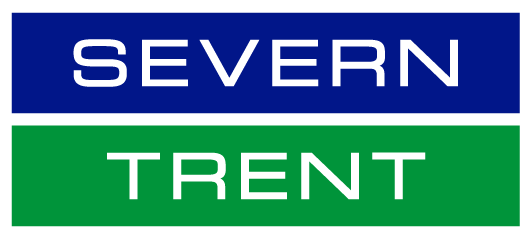From dummies and wet wipes to toys and tins – snapshot of gross items flushed down our loos
16th October 2023
A dummy, cotton buds, bottle tops, plastic forks, crisp packets, golf balls, tins, coins, toy figures, disposable razors and wet wipes.
They were among just a handful of gross items flushed down toilets and drains, before later being filtered out at Severn Trent’s sewage treatment works at Minworth in Sutton Coldfield.
The water company is supporting a nationwide ‘Unblocktober’ campaign during October to urge the public to ‘be a binner, not a blocker’ to help protect our sewers - and prevent costly blockages in their own homes.
It comes after new figures showed Severn Trent staff has to deal with a staggering 34,580 blockages in the last year alone, despite their efforts helping prevent more than TEN MILLION litres of fats, oils and grease from entering the sewers.
Liz Perkins has worked at Minworth for 10 years as a mechanical fitter and showed off just a small patch of the unflushable items dumped down toilets and drains and into the sewers.
The damaging debris is filtered out through Minworth’s comprehensive sewage treatment system and ends up in skips as ‘rag’ at the end of the process, where it is collected and taken to landfill for burial.
Liz is among the dedicated team who have to shovel the piles of rag every day into skips for landfill and urged the public to support Unblocktober by binning the gross items, not blocking up sewers.
She said: “We get all sorts coming through the sewers after wrongly being flushed down toilets or drains – it’s awful.
“These items can cause problems by blocking up the sewers and potentially causing major blockages, including fatbergs.
“I look at some of the stuff that comes through our sewers and think, ‘How did that get through?’. We even once had the best part of a garden shed. We also see everything from wet wipes and cotton buds to plastic forks and even toy figures.”
Minworth is Severn Trent’s largest sewage treatment plant, serving a population of 1.75 million people across Birmingham and the Black Country. The sprawling site treats an average of 6,600 litres of sewage per second, but can see that double during heavy storms.
Every week around two and a half tonnes of wipes and other items which shouldn’t be flushed are pulled out of our sewers - about the same weight as a Range Rover. Fats, oils and greases that are washed down the sink rather left to dry and scraped in the bin are also a big contributing factor of blockages. They can potentially create damaging fatbergs - which can lead to sewer blockages and flooding incidents.
Liz, from Erdington, echoed the importance of the ‘be a binner, not a blocker’ advice for householders and businesses during Unblocktober, along with another message - only flush the ‘3Ps’.
“It’s all about education. The only thing that should go down your toilets are poo, pee and paper,” she said.
“I have friends who ask me if they can put disposable wipes down the toilet and I say ‘no!’ Even the so-called ‘flushable’ wipes should not be put down the toilet because they will just end up here in the rag.”
And despite the challenges of the job, Liz says she is passionate about her role at Minworth. “I love my work here because every day is different, which makes it really interesting.
“We have a great team here who are doing really important work for all our customers.”
Grant Mitchell, sewer blockages lead at Severn Trent, said: “A lot of people don’t know that sewer pipes are only the size of your average toilet roll, so it doesn’t take much to block them. That’s why we’re big supporters of Unblocktober – we want to get the ‘be a binner, not a blocker’ message out there and help protect our customers and their homes.”
He added: “Throughout Unblocktober, we’ll be highlighting the amazing work our teams do to tackle blockages and the horrible problems that can occur when you flush the wrong thing. So, help us out and be a binner, not a blocker.”
